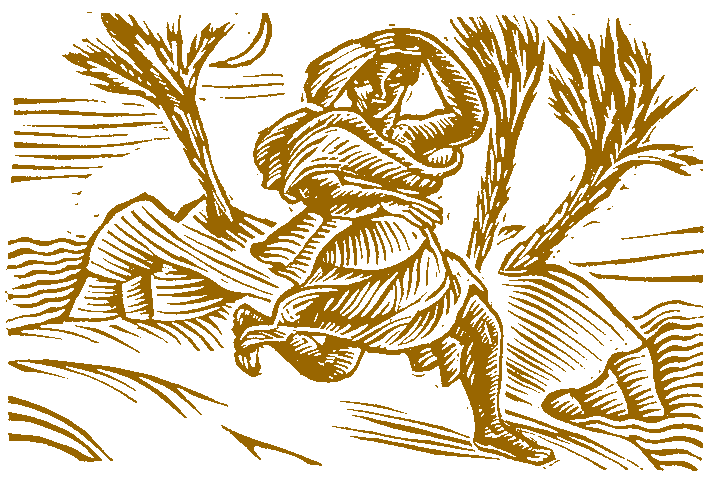Jacqueline Jones. A Dreadful Deceit. The Myth of Race from the Colonial Era to Obama's America. New York: Basic Books, 2013.
I]
This book is the perfect gift for that hard-to-disarm bigot on your list who can’t grasp the idea that race is a construct. Note that I said construct, not social construct, because the author does not fully grasp what a social construct is. Her book's a series of interesting vignettes about interesting Americans, ranging from the prosecution in 1656 of a Maryland planter for the torture and murder of a black slave in which the fact that the victim was black didn't come up, to a black Trotskyite union organizer in Detroit in the ‘seventies who refused to be drawn into race-baiting and divisiveness. The author concludes that the concept of race has been used throughout American History as a “partisan political weapon,” a tool of “political and economic opportunism,” and so forth; and that if we wouldn’t so “worship the market” all would be fine; she sounds like an undergraduate doing the Occupy.
II]
And, as with Occupy, it’s not the talk itself that’s problematic, it’s what’s absent from it. In her first vignette Jones points out that the murdered slave Antonio was vulnerable, not because he was black but because he was known not to belong to a kindred group, nation or tribe that could offer protection or exact revenge:
Justifications for slavery remained fluid, and […] neither legal authorities nor planters were deploying the notion of racial differences as a rationale for the subordination of black people.
There’s a fundamental methodological flaw in this argument: the fact that such notions were not deployed as rationalizations does not mean they weren’t present in some fashion. Jones is one of those self-protective progressives who’d like to believe the only racist behavior is the behavior that’s overtly, consciously racial: “Most Chesapeake planters were neither ideologues nor idealists; they were entrepreneurs bent on making money.” (Being bent on making money is not an ideology? Who knew?) Since she can’t manage to locate an articulated theory of race in ideologies she places responsibility for Antonio's death, by default, on "entrepreneurship:" filthy lucre. By deploying the old argumentum ex silentio, Jones sidesteps the obvious: that racism is a function of social practices that need not be articulated because they are social practices. As Etienne Balibar once observed, there is no esoteric racism: racial theorizing is invariably an incarnation of social norms or projected social norms, and not the other way around. And it’s the resiliency of racism as a protean social dynamic that Jones at once illustrates, and refuses to acknowledge: whatever mild demurrals she may make, racism to her is not something anchored in social practice; in the typical fashion of the positivist she anchors it on one side in an idealistic, near-metaphysical definition of what racism is, and on the other in the will of the individual actor: Personal Responsibility in Racial Discrimination.

III]
The most revealing silence in this book, however, is not about the construction of racism, it’s about the construction of white identity. There’s a very strong argument that racism is not constructed by defining from the outside what it means to be black but by defining from the inside what it means to be white, a definition that serves to exclude the Other without ever defining Otherness except as lack: it’s called norming out. In America the construction of race is inseparable from the construction of Whiteness as a norm. Jones gives a perfect example of this when she discusses a statement that the slave Antonio behaved like a “wild man.” Triumphantly she argues that since the Wild Man in European lore was not associated with people of African descent there was no racial stigmatization implied. Then she goes on to explain that there was little difference in the kinds of labor assigned to enslaved Africans and indentured Englishmen, except that the customary rights of Englishmen were usually observed, and a master who killed his English servant would almost surely hang. By suggesting that Antonio was a “wild man,” his master was arguing the very specific point that his slave was not a “civilized man,” i.e. not white: beyond the Pale, if you'll forgive the pun. Antonio had no rights that any white man was bound to respect. To this Jones adds, that when the blurring of the line between Englishness and being black became too great because of the many children of mixed parentage, the Virginia Legislature determined that any child born of mixed parentage had the legal rights of the mother, which in the case of black women meant the right to be raped for the reproduction of capital. Jones is content to admit that race is a social construction while asking us to to believe that racism is some kind of a-priori that each subject may embrace or reject as he sees fit. What she demonstrates, in fact, is quite the opposite: that whenever our definition of race or racism (its social construction) doesn’t fit the social norms we simply move the cognitive goalposts; and moving the goalposts is how many Americans deal with racism, even today: not by acknowledging the forms it takes, but rather by finding a way to exempt themselves as the active subject of conscious racial behavior, leaving aside their role as passive tools of social norms. There are those (they are many) who believe they can be dispensed from the charge of racism because the idea of race never comes up in their discourse or behavior; others seize on hegemonic discourse in order to claim exemption from the charge of hegemonic behavior: "blacks can't be racists because yadda yadda;" "liberals can't be racist because blahblahblah." This is how we participate, most of us, in the marginalization of people of color—what is commonly called racism; but after all it was the custom for the Emperor of China to turn those Palace dogs who could not be house-broken into slippers: If the Fu shits, wear it.
James Jackson Jiveass
subscribe:
Like an RSS feed or Twitter, only easier: you drop me a note and every week or so I send you a short message with a link to my latest posting; other stuff, maybe every other month.
donate:
Because paying no dues to Caesar is the one luxury that's not encouraged in a consumer society. Easy: you paypal me a buck or two.
comments:
And you don't have to sign up to post them; they are moderated, though.
